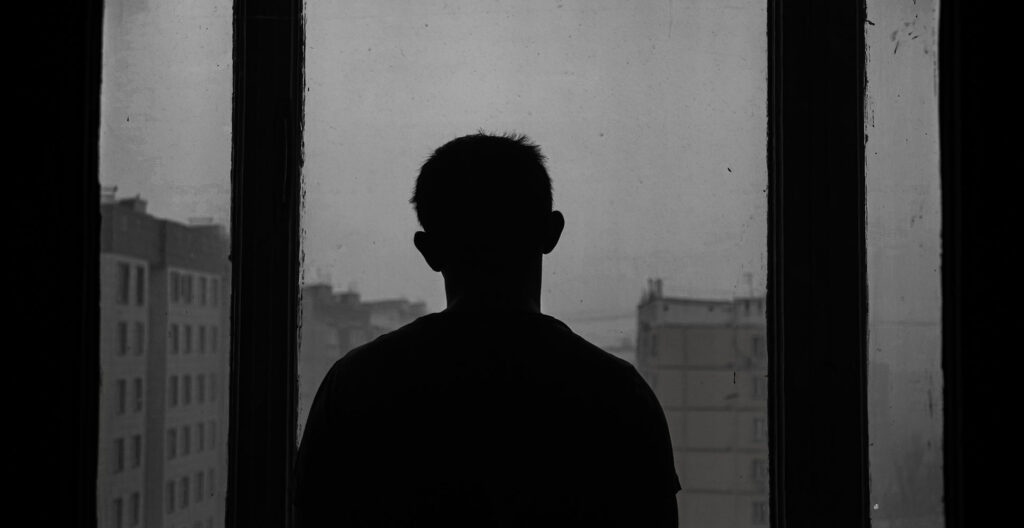Many people who are unfamiliar with addiction find it difficult to relate to those who develop addictive habits. Since addiction is a widely recognised mental illness, it often comes with strong negative emotions and feelings of helplessness. In this article, I will focus on describing how addiction feels like for someone, from the start of their addiction habits to the process of seeking recovery and relapsing.
Feeling Isolated
Addiction can be a terribly lonely mental health condition. In many cases, some individuals start engaging in chronic addictive habits in an attempt to escape painful feelings of loneliness. As addiction progresses, the vicious cycle of isolation and dependency is deepened even further. Being stuck in this cycle can make people feel like they are cut off from the rest of the world.
Many addicts can feel misunderstood, judged, and stigmatised for their mental health struggles, which is why they refrain from seeking social support or from engaging in fulfilling interpersonal relationships. The source of one’s addiction can become their only source of support – some individuals feel like it is only them and their addiction who must cope with the overwhelming demands of life.
Feelings of loneliness can be exacerbated even more as someone’s behavior changes as a result of chronic addiction – it is well-known that addictions of any kind result in personality and behavior changes, creating mood swings and irritability and even leading to aggression or uncontrollable anger.
This makes it difficult for people to be around someone who struggles with addiction. However, despite their attempt to push people away, many addicted individuals only need someone whom they can fully open up to.
Feeling Hooked
Addiction quickly takes control of one’s life, making them feel powerless in the face of their urges. The most difficult part of any addiction is regaining a sense of control once the addictive behaviors have been formed.
The feeling of being trapped in the vicious cycle of addiction does not mean that someone is weak or has a faulty moral compass; the biological changes that occur in the brain once an addictive habit sets in makes it very difficult for someone to control their behaviors and desires to engage in destructive habits.
Research studies indicate that the loss of control over one’s actions is caused by significant changes in a brain area called the prefrontal cortex, which is responsible for behavioral autonomy and self-control. This makes many individuals feel ‘hooked’ onto their habits, even if they try their best to change them. It is because their biology has been wired for compulsive addictive behaviors, which are sometimes automatic and occur without someone’s deliberate actions.
Dealing with the Consequences
Another crucial aspect of addiction is having to deal with the negative consequences that result from engaging in destructive addictive behaviors. Chronic addiction leads to difficulties with emotional regulation and other mental health symptoms such as reduced motivation, poor cognitive skills and altered sleep patterns; which can leave negative consequences on someone’s job, familial duties or social activity.
As a result, some people might encounter serious financial instability, relationship tension or conflict and impaired social life. Handling these consequences when one does not feel at their best can feel significantly challenging – some individuals might feel urged to solve problems while having no resources for properly doing that.
Wanting to Recover, but Continually Relapsing
Despite what many people say, many addicted individuals do wish to cease their toxic habits. Even if their willpower exists, the difficulties with self-control, lack of adequate resources and emotional dysregulation make it difficult for an addict to stick to a recovery plan by themselves. As a result, they might be stuck in a perpetual attempt to cease their habits but fall back into their old behavioral patterns of addiction.
Shame & Embarrassment
Besides the aforementioned consequences of living with a mental health problem, another difficult aspect of this issue is encountering stigma associated with mental illness. Some people might feel a great deal of shame and embarrassment for dealing with unpleasant mental health symptoms. Others can also internalize the idea that there is something faulty about their brain just because they have a mental health diagnosis. Dealing with feelings of inadequacy and shame can worsen and exacerbate existing symptoms, deepening the problem.
Dealing with Withdrawal Symptoms
The difficulties caused by addiction continue even after someone has stopped engaging in their old habits. Quitting addiction is marked by unpleasant withdrawal symptoms, which manifest in irritability, intense cravings, mood swings, altered sleep patterns, and behavioral changes. This is why it is tremendously important for those in recovery to have adequate medical and therapeutic support during this stage – the uncomfortable withdrawal effects can pose a high risk for someone to relapse.
Final Words
Addiction is a brain disease that significantly affects mental health. It causes intense feelings of loneliness and helplessness, which are exacerbated by social stigma and lack of support and resources. This makes it imperative for those stuck in an addiction cycle to benefit from adequate support from trained medical professionals and social connections – undoing the harmful effects of addiction can only be achieved by making the addicted person feel accepted, understood, and supported during the most critical times.

